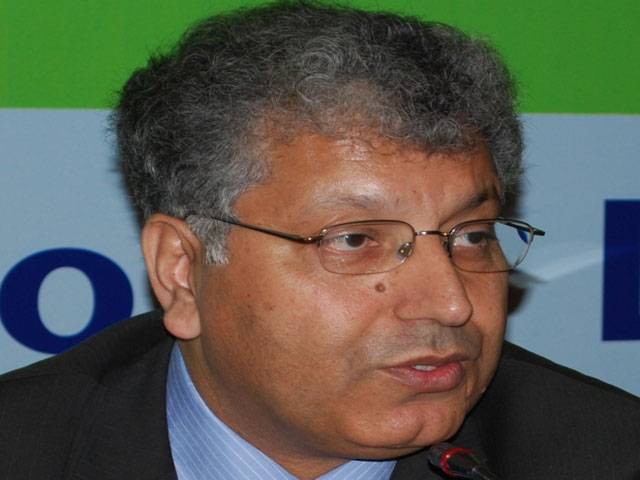ISLAMABAD - Chairman Higher Education Commission (HEC) Dr. Mukhtar Ahmed has said that there is a need for creating impact of knowledge in terms of indigenous solutions to Pakistan's problems and development issues.
He said this while delivering a special lecture on 'The State of Higher Education in Pakistan' at the SDPI here Monday.
Dr. Ahmed highlighted that higher education institutions are increasingly getting clustered in bigger cities, while there is an equal need for quality education in smaller cities of the country.
He said since the formation of the HEC in 2002, the state of higher education in Pakistan has improved significantly in terms of research output and quality. It is now time to think of ways in which higher education can have real impact for the welfare of the society at large. He stressed the need for a value-based education system.
On the issue of fake degrees, he said making the information about validity of degrees public has damaged the reputation of the HEC. In the context of the 18th amendment, he said that there should be a centrally set minimum standard of education. However, a consultative process is being pursued with provincial governments with regards to higher education policy.
Dr. Abid Suleri, Executive Director, SDPI, highlighted that it is important that real world problems and issues of development be covered in the curriculum taught at universities. He added that in Bangladesh and India, universities are proactive in linking research with policy, while in Pakistan think-tanks are playing a more active role in the policy domain compared to universities.
He suggested that the HEC could issue a standard template for maintaining a district data profile, while universities can follow the template in collecting data. This would help in minimizing the oft-quoted discrepancy of data available for both academic and policy research.
Dr. Muhammad Qaiser, VC, University of Karachi, observed that there needs to be more funding for higher education and the budgetary share of higher education needs to be scaled up to at least 4 per cent. He added that there should be greater balance between basic research and applied research to find solutions to real-world problems.
Dr. Asad Zaman, VC of the Pakistan Institute of Development Economics (PIDE), observed that liberal arts and culture are becoming neglected in higher education in Pakistan. This is unfortunate, since we have a strong poetic heritage, which can be very important in inspiring students to serve the nation and create impact of the knowledge acquired.
Dr. Eatzaz Ahmed, VC, Quaid-i-Azam University, highlighted the need for better quality of education at the college and high-school level. He added that there is a need for qualitative measures for gauging the impact of knowledge.
Dr. Masoom Yasinzai, Rector IIUI, observed that investments in higher education over the last one decade have changed the landscape of the country. Pakistan now has a share of 0.25 per cent in global academic literature. He stressed that basic research should be pursued, while maintaining adequate balance for applied research. It is also important to enhance the quality of higher education so as to prevent brain drain from the country.
Friday, April 19, 2024
Higher education key to resolving issues: Speakers

Caption: Higher education key to resolving issues: Speakers
Faizabad commission report leaked, it should be made public now, suggests Abbasi
11:11 AM | April 19, 2024
MPCL makes new gas discovery in Sindh’s Marighazj formation
April 19, 2024
A Tense Neighbourhood
April 19, 2024
Dubai Underwater
April 19, 2024
X Debate Continues
April 19, 2024
Hepatitis Challenge
April 18, 2024
IMF Predictions
April 18, 2024
Kite tragedy
April 19, 2024
Discipline dilemma
April 19, 2024
Urgent plea
April 19, 2024
Justice denied
April 18, 2024
AI dilemmas unveiled
April 18, 2024
ePaper - Nawaiwaqt
Advertisement
Nawaiwaqt Group | Copyright © 2024





